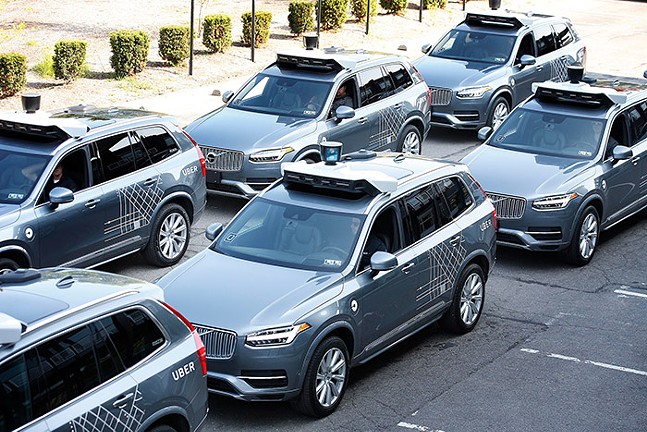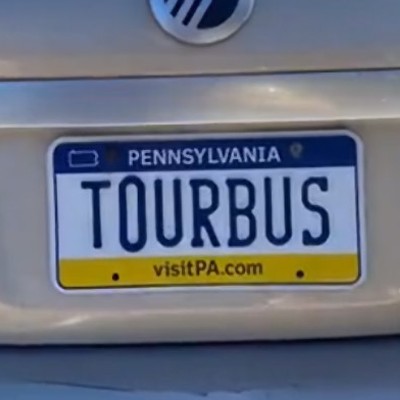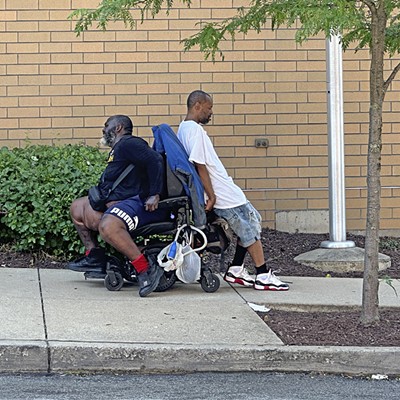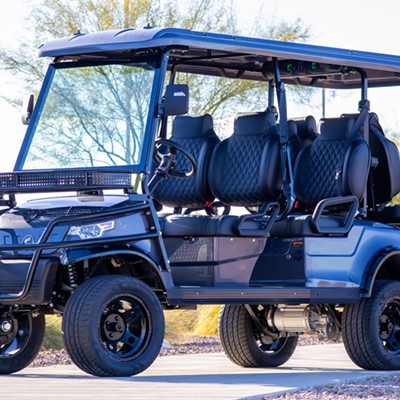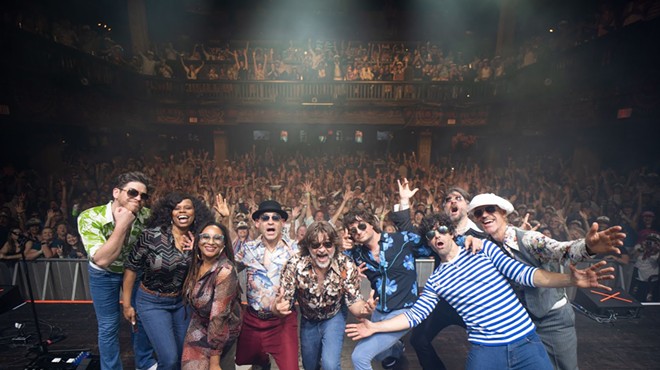Human operators still essential in autonomous vehicles, says new CMU report
[
{
"name": "Local Action Unit",
"component": "24929589",
"insertPoint": "3",
"requiredCountToDisplay": "1"
}
]
Researchers from Carnegie Mellon University’s Traffic21, a transportation research institute, urge the use of human operators on automated transit vehicles in a recent policy brief released by the institution.
“Robotic buses, no matter the level of automation achieved, cannot replace skilled operators who are there to keep our passengers safe during the challenging and unpredictable operating environment in public transit," says Transport Workers Union of America President John Samuelsen in a press release, who adds CMU’s research is something his organization has known for a long time. "A driverless bus can't intervene with an unruly passenger or go off-route during a security or weather emergency."
Former mayor Bill Peduto proposed bringing autonomous shuttles to transport passengers through Oakland, Greenfield, and Hazelwood in 2019, but he faced opposition from public-transit advocates who believed the vehicles would be “too slow and low-capacity” to service the corridor.
In Traffic21’s policy brief, they urge policy leaders to examine how new technologies would affect the operation of and the workforce driving public transportation and to prioritize safety.
Nikolas Martelaro, an assistant professor at Carnegie Mellon University and the lead author of the policy brief, believes that AV developers need to include frontline workers when developing any autonomous technologies for transit buses or vans.
“While our policy brief made recommendations for federal agencies, local transit authorities such as Port Authority can begin to think about the impact of autonomous vehicles technology and its safety in regards to its transit operations and transit workers,” he says.
Martelaro also emphasizes that although the brief focuses on transit operators, it still contains important information for those who develop autonomous technologies.
“Although our policy brief was focused specifically on transit operators, the research we discuss is important for AV developers to consider,” says Martelaro. “There can be similar challenges for truck and car drivers interfacing with these automated systems.”
Pittsburgh has had a considerable history in recent years when it comes to autonomous vehicles.
The technology was hyped for years in the city, but Uber confirmed to Pittsburgh City Paper in 2019 that they “realize that this technology will take years to commercialize,” adding that they “really do need the skilled expertise of drivers to handle the more challenging scenarios that are not ideal use cases for AVs.”
After a pedestrian was struck and killed by an Uber AV in Arizona in 2018, the company halted testing for months, until it was cleared by PennDot to test again in Pennsylvania, where it continued to test AVs in a loop of streets in the Strip District.
But Pittsburgh’s tech companies continue to believe the vehicles could have an important place in the future of mobility.
While Uber ended its autonomous vehicle pursuit in December 2020, the company sold it to Pittsburgh-based Aurora Innovation, which works with autonomous vehicles. Aurora has since made Pittsburgh the site of its corporate headquarters.
The policy brief mentions the unique situations in which operators find themselves, including changing weather, road hazards, and the needs of passengers.
“Researchers make clear that keeping highly skilled, highly trained human operators onboard transit vehicles — a priority long called for by the TWU — is key to the future of safety within the transit industry,” says TWU in the release.
“Robotic buses, no matter the level of automation achieved, cannot replace skilled operators who are there to keep our passengers safe during the challenging and unpredictable operating environment in public transit," says Transport Workers Union of America President John Samuelsen in a press release, who adds CMU’s research is something his organization has known for a long time. "A driverless bus can't intervene with an unruly passenger or go off-route during a security or weather emergency."
Former mayor Bill Peduto proposed bringing autonomous shuttles to transport passengers through Oakland, Greenfield, and Hazelwood in 2019, but he faced opposition from public-transit advocates who believed the vehicles would be “too slow and low-capacity” to service the corridor.
In Traffic21’s policy brief, they urge policy leaders to examine how new technologies would affect the operation of and the workforce driving public transportation and to prioritize safety.
Nikolas Martelaro, an assistant professor at Carnegie Mellon University and the lead author of the policy brief, believes that AV developers need to include frontline workers when developing any autonomous technologies for transit buses or vans.
“While our policy brief made recommendations for federal agencies, local transit authorities such as Port Authority can begin to think about the impact of autonomous vehicles technology and its safety in regards to its transit operations and transit workers,” he says.
Martelaro also emphasizes that although the brief focuses on transit operators, it still contains important information for those who develop autonomous technologies.
“Although our policy brief was focused specifically on transit operators, the research we discuss is important for AV developers to consider,” says Martelaro. “There can be similar challenges for truck and car drivers interfacing with these automated systems.”
Pittsburgh has had a considerable history in recent years when it comes to autonomous vehicles.
The technology was hyped for years in the city, but Uber confirmed to Pittsburgh City Paper in 2019 that they “realize that this technology will take years to commercialize,” adding that they “really do need the skilled expertise of drivers to handle the more challenging scenarios that are not ideal use cases for AVs.”
After a pedestrian was struck and killed by an Uber AV in Arizona in 2018, the company halted testing for months, until it was cleared by PennDot to test again in Pennsylvania, where it continued to test AVs in a loop of streets in the Strip District.
But Pittsburgh’s tech companies continue to believe the vehicles could have an important place in the future of mobility.
While Uber ended its autonomous vehicle pursuit in December 2020, the company sold it to Pittsburgh-based Aurora Innovation, which works with autonomous vehicles. Aurora has since made Pittsburgh the site of its corporate headquarters.
The policy brief mentions the unique situations in which operators find themselves, including changing weather, road hazards, and the needs of passengers.
“Researchers make clear that keeping highly skilled, highly trained human operators onboard transit vehicles — a priority long called for by the TWU — is key to the future of safety within the transit industry,” says TWU in the release.

